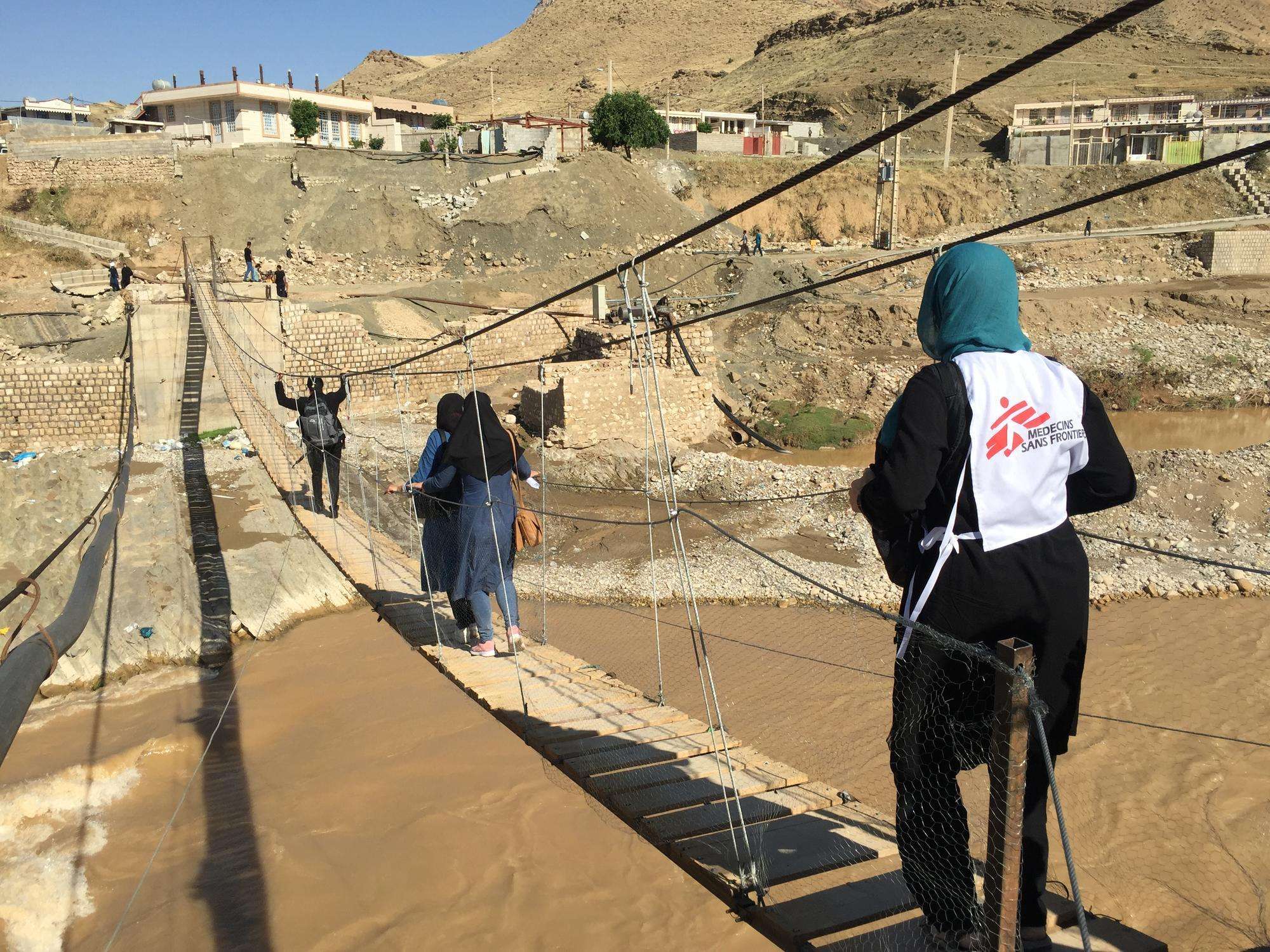It’s been nearly two months since flash floods swept through areas along the Kashkan River, in western Iran’s Lorestan province. In the town of Pol-e Dokhtar, life is starting to return to normal in a severely affected neighborhood on the river’s bank. Most of the sludge and rubble left by the raging waters has been cleared away, while reconstruction of a few houses and shops has begun. General relief efforts are ongoing, and Doctors Without Borders/Médecins Sans Frontières (MSF) teams are providing assistance to people in five villages north of the city in collaboration with the Ministry of Health.
Despite repairs to infrastructure bordering the river, major damage is still visible along a 100 kilometer [about 62 mile] stretch of road in the area. Whole sections of asphalt and all the main bridges have been washed away. In the few villages that were directly affected, some inhabitants are living in tent shelters and are dependent on food and water distributions.
Cut off from care
Fifteen kilometers [about nine miles] north of Pol-e Dokhtar, an MSF team crosses a new rope bridge over the Kashkan river on foot, medical equipment and drugs stowed in backpacks. They are trying to reach the isolated village of Paran Parvis. After the bridge crossing and a 20 minute cab ride they reach the settlement, where they set up a mobile clinic inside a health post with the support of local paramedical staff.
Although the village did not suffer any damage in the floods, the people here have been completely isolated by the destruction of bridges. As a result, it’s been weeks since the local doctor who normally serves this population has been able to come from the nearest health center. Each week, the MSF team visits Paran Parvis to provide medical consultations. A midwife monitors pregnant women. Children cheerfully welcome the MSF team as they arrive, while people begin to gather in front of the health center.
Caring for the most vulnerable
Even before the floods destroyed many of the roads and bridges it was difficult for people living in this mountainous region to move around, especially the elderly. Some families have lost their homes and belongings and can no longer afford to travel for medical care. The free health services provided by MSF’s mobile teams are a welcome relief for many.
We treat many elderly people, especially women, for chronic diseases such as high blood pressure and diabetes. Patients are also often treated for upper respiratory tract infections and general pain, while the midwife tends to pregnant women. Since early May, the mobile clinic has visited five difficult-to-access villages. To reach the villages of Vareh Zard and Khersdar Softla, for example, the MSF team must cross the river on foot.
Further down the bank, the village of Baba Zayd has been ravaged by the waters. The remnants of the health post are filled with mud and debris. The local authorities have installed containers to replace this health facility and a school which was also destroyed, but they lack qualified staff and basic drugs. In response, MSF installed a mobile clinic, set up in a container, to provide medical care to displaced people living in tents.
While the overall situation is slowly improving, our teams are committed to providing care to recovering communities, and will continue to assess the needs in the area.




